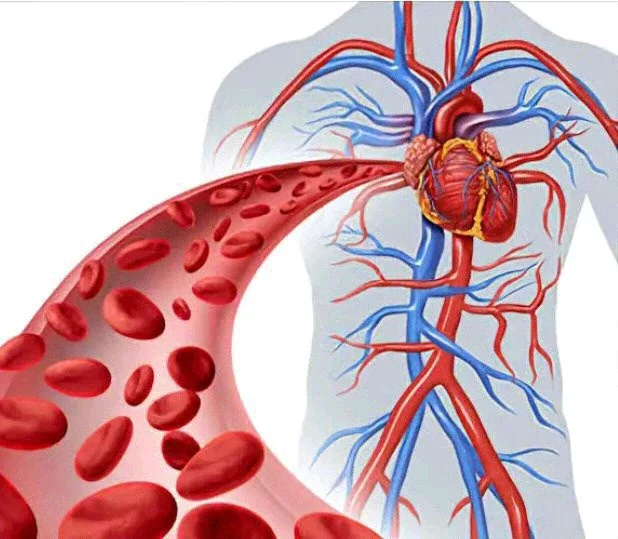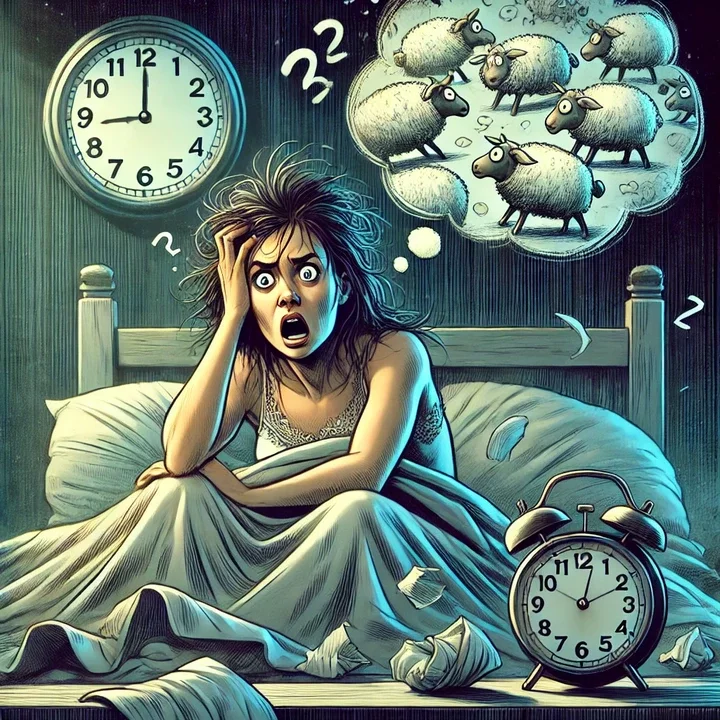Sleep is an essential aspect of human life. It provides rest and rejuvenation, allowing the body and mind to recover from the day's activities. Unfortunately, not everyone experiences a peaceful slumber every night. Many individuals struggle with sleeplessness, tossing and turning in bed, unable to find the rest they desperately need. While occasional sleepless nights may be commonplace for some, chronic insomnia can be an indication of underlying medical conditions. In this article which is in accordance to medicalnewstoday, we will explore various medical reasons why some people can't sleep at night.

1. Insomnia:
Insomnia is one of the most common sleep disorders, affecting millions of individuals worldwide. It is characterized by the inability to initiate or maintain sleep, leading to restlessness and daytime fatigue. Chronic insomnia can occur due to various reasons, including stress, anxiety, or depression. Medical conditions like gastroesophageal reflux disease (GERD), chronic pain, respiratory problems such as asthma or sleep apnea, or hormonal imbalances may also contribute to insomnia.
2. Sleep Apnea:
Sleep apnea is a severe sleep disorder where breathing repeatedly stops and starts during sleep. These pauses in breathing can last anywhere from a few seconds to a minute and can occur multiple times throughout the night. People with sleep apnea may snore loudly and gasp for breath, leading to disrupted sleep. The condition can cause excessive daytime sleepiness, morning headaches, and difficulty concentrating. Sleep apnea is often associated with obesity, high blood pressure, and cardiovascular diseases.
3. Restless Leg Syndrome (RLS):
Restless Leg Syndrome is a neurological disorder characterized by an uncontrollable urge to move one's legs, accompanied by an uncomfortable sensation in the limbs. These symptoms usually worsen during periods of inactivity or at night, leading to difficulty falling asleep. The exact cause of RLS is unknown, but it is believed to be related to dopamine imbalances in the brain. RLS can significantly impact sleep quality and leave individuals feeling constantly fatigued.
4. Circadian Rhythm Disorders:
Our body's internal clock, known as the circadian rhythm, regulates various biological processes, including the sleep-wake cycle. When this internal clock is disrupted, it can result in circadian rhythm disorders. Shift work disorder, jet lag, and delayed sleep-phase syndrome are examples of such disorders. People with shift work disorder, for instance, experience difficulty adjusting their sleep patterns to align with their work schedule, often leading to inadequate sleep.
5. Nocturia:
Nocturia refers to the frequent need to urinate during the night, disrupting sleep. This condition is more prevalent in older individuals, as aging can lead to reduced bladder capacity and decreased ability to hold urine. Other underlying medical conditions like diabetes, urinary tract infections, or an overactive bladder can also contribute to nocturia. The constant need to get up and use the bathroom can disrupt sleep continuity and lead to sleep deprivation.
6. Chronic Pain:
Chronic pain conditions, such as arthritis, fibromyalgia, or back pain, can significantly impact sleep quality. The pain experienced can make it challenging to find a comfortable sleeping position, leading to restless nights. Additionally, pain can cause increased arousal during sleep, resulting in frequent awakenings and the inability to achieve deep, restorative sleep.
7. Mental Health Disorders:
Mental health disorders such as anxiety, depression, bipolar disorder, or post-traumatic stress disorder (PTSD) can disrupt normal sleep patterns. Individuals with anxiety may experience racing thoughts, preventing them from relaxing and falling asleep. Depression often leads to changes in sleep patterns, including insomnia or excessive sleepiness. These conditions can create a vicious cycle, as poor sleep can exacerbate mental health symptoms, leading to more sleepless nights.
8. Medications:
Certain medications can interfere with sleep patterns. Stimulants like caffeine, nicotine, and some medications used for asthma, allergies, or attention-deficit/hyperactivity disorder (ADHD) can disrupt sleep duration and quality. Conversely, some medications used to treat hypertension, asthma, or depression may have side effects that cause drowsiness or difficulty falling asleep.
Sleep is a crucial aspect of our overall well-being, and its disruption can significantly impact our health and quality of life. While occasional sleepless nights may be attributed to common factors, the presence of chronic insomnia should prompt individuals to consider underlying medical conditions. Seeking medical advice and treatment for these conditions is essential to address sleep disturbances effectively. By understanding the medical reasons behind sleeplessness, individuals can take proactive steps towards restoring peaceful nights and optimal health.
















Comments